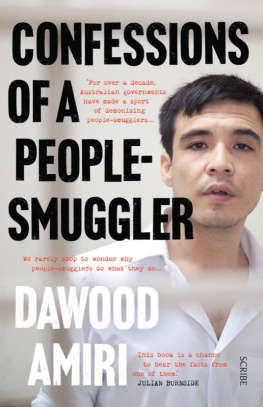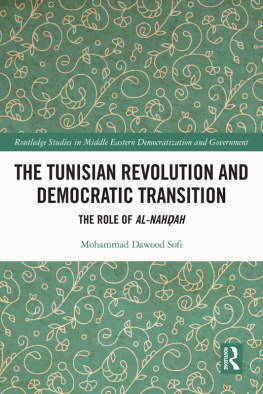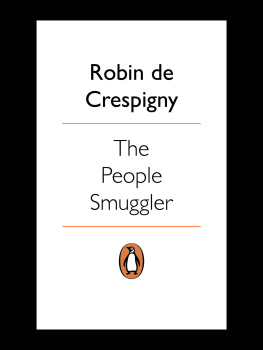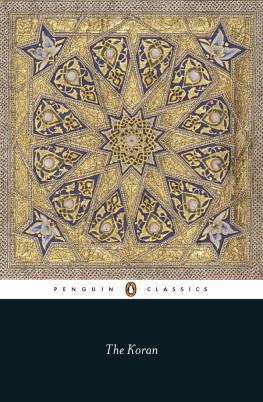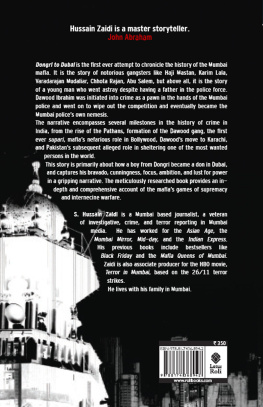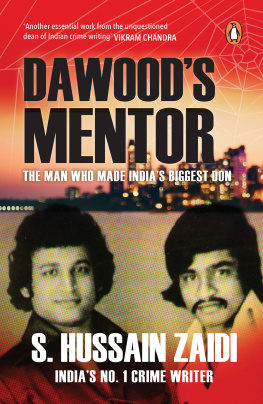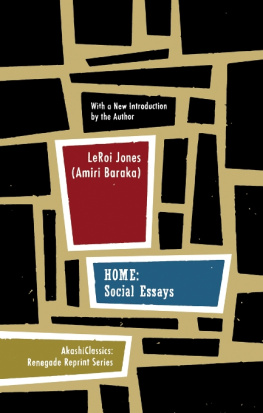Dawood Amiri - Confessions of a People-Smuggler
Here you can read online Dawood Amiri - Confessions of a People-Smuggler full text of the book (entire story) in english for free. Download pdf and epub, get meaning, cover and reviews about this ebook. City: Melbourne, year: 2014, publisher: Scribe, genre: Home and family. Description of the work, (preface) as well as reviews are available. Best literature library LitArk.com created for fans of good reading and offers a wide selection of genres:
Romance novel
Science fiction
Adventure
Detective
Science
History
Home and family
Prose
Art
Politics
Computer
Non-fiction
Religion
Business
Children
Humor
Choose a favorite category and find really read worthwhile books. Enjoy immersion in the world of imagination, feel the emotions of the characters or learn something new for yourself, make an fascinating discovery.
- Book:Confessions of a People-Smuggler
- Author:
- Publisher:Scribe
- Genre:
- Year:2014
- City:Melbourne
- Rating:4 / 5
- Favourites:Add to favourites
- Your mark:
- 80
- 1
- 2
- 3
- 4
- 5
Confessions of a People-Smuggler: summary, description and annotation
We offer to read an annotation, description, summary or preface (depends on what the author of the book "Confessions of a People-Smuggler" wrote himself). If you haven't found the necessary information about the book — write in the comments, we will try to find it.
Confessions of a People-Smuggler — read online for free the complete book (whole text) full work
Below is the text of the book, divided by pages. System saving the place of the last page read, allows you to conveniently read the book "Confessions of a People-Smuggler" online for free, without having to search again every time where you left off. Put a bookmark, and you can go to the page where you finished reading at any time.
Font size:
Interval:
Bookmark:

Scribe Publications
CONFESSIONS OF A PEOPLE-SMUGGLER
Dawood Amiri is an ethnic Hazara who fled with his family from Afghanistan for Quetta in Pakistan when he was a young boy. He had hoped to establish a career as an accountant, but an escalating terror campaign organised by the Taliban and targeted at Hazara Shias in Quetta, and elsewhere in Pakistan, made him fear for his life.
Amiri decided to seek asylum in Australia, via Indonesia, by using the services of people-smugglers to transport him by boat. Instead, he languishes in a Jakarta prison, having himself been sentenced as a people-smuggler. Confessions of a People-Smuggler is a revelatory account of what drove him, and what happened to him.
To my mum
Scribe Publications
1820 Edward St, Brunswick, Victoria 3056, Australia
2 John St, Clerkenwell, London, WC1N 2ES, United Kingdom
First published by Scribe 2014
Copyright Dawood Amiri 2014
All rights reserved. Without limiting the rights under copyright reserved above, no part of this publication may be reproduced, stored in or introduced into a retrieval system, or transmitted, in any form or by any means (electronic, mechanical, photocopying, recording or otherwise) without the prior written permission of the publishers of this book.
National Library of Australia
Cataloguing-in-Publication data
Amiri, Dawood, author
Confessions of a People-Smuggler / Dawood Amiri.
9781925106091 (paperback)
9781925113372 (e-book)
1. Amiri, Dawood. 2. Boat peopleAustraliaBiography. 3. Political refugeesBiography. 4. TrialsIndonesia. 5. Human smugglingAustralia. 6. Human smugglingIndonesia.
345.5980237
scribepublications.com.au
scribepublications.co.uk
CONTENTS
NOTE
All dollar amounts mentioned in this book are expressed in US currency.
MY PAST
I hate the word poor, so I will not use it. I would rather say that when I began to understand things, I found myself part of a family that had weak financial foundations, but who were united and devoted to each other with strong bonds of love. My family had come from Afghanistan, but fled to Pakistan when I was very young.
I got my secondary-school education at a government school in Alamdar Road, Quetta, in Pakistan. I was not intelligent throughout my school career I was keenly aware that some of my classmates were more intelligent than me. But until the end of my schooling, when I obtained my Secondary School Certificate, I always finished in first or second place in all my subjects, from year one to year ten. Maybe it was because of two combined qualities of my temperament that is, my willingness to work hard, and my stubbornness. It was very hard for me to understand the various science subjects, but I practised the lessons repeatedly after school until all of it finally lodged in my mind. The only subjects I was naturally good at were simple mathematics and the English language.
During my school life, the competition among all the students of Quetta, in Balochistan, was very intense. Especially among the Hazara people, education was so deeply respected that most parents and guardians of school and college students would proudly work themselves half to death to earn enough money to spend on their childrens education. In return, their children enjoyed the challenging education they received. They were energetic, naughty, and hard-working, never wasting their time, and always filled with the desire to become useful to their families futures by qualifying for good careers. And Hazaras in Quetta had always been successful in doing just that.
From 1997 to 1999, I was in years six, seven, and eight. At that time, during the rule of the countrys racist, sectarian, capitalist, and corrupt prime minister, Pakistans economy suffered a great increase in inflation and unemployment. This forced many financially weak people to work more, just to earn enough for basic necessities. Families like mine living in monthly rental houses and with an average of six members needed at least two or three incomes to support the family financially.
I dont want to write anything about my late father, except to say that he was a man of great principles, and I loved him very much. I would rather indicate my own position in the family. I was the eldest son, and the eldest brother of my elder sister and younger brothers, so my position in the family was associated with responsibilities. In my last year at school, which is called matric in the Pakistani education system, I formally started earning money, working to contribute my share to my familys income. Still I passed the last year of school with high marks 678 out of 850, or 80 per cent and a remarkable position. I was the top of my schools final-year students, within the top five of all Quetta citys matric students, and within the top ten of all Balochistan-province matric students. For this, I won a cash prize of 5,000 Pakistani rupiah from my school principal, Mohammad Mubeen, and other staff members a significant amount of money at the time. The real happiness for me in winning this prize came from being able to pay off some old family debts with the money, and giving the rest to my mum for other family needs.
I kept making a little money to contribute to my familys income and expenditure, and I also continued my education after being admitted to a good federal government college in Quetta for a Higher Secondary School Certificate (HSSC). I managed to buy my college uniform, books, and a bicycle for getting about. But in my second month of college I learned that I had to pay yearly fees of 2,150 rupiah, which I did not have and that the deadline was fifteen days from the date of notification. I had the sole responsibility of finding the money, but I could not manage it. A schoolteacher, Mohammad Ali, known as Lalai Jan, who liked me very much due to my hard work and character, had once told me that if I needed any kind of financial help for college, I should feel free to contact him at any time. So, one day before the deadline, I went to his home after college hours, and told him that I had no money to pay for my first-year fees. He smiled and went inside. After five minutes or so, he came out and handed me an amount of 2,500 rupiah. I thanked him with wet eyes and left for home. The next day, I paid my college fees, and I was able to relax about the question of education expenses for the whole year. For the second year, I arranged all my expenses myself. I spent the years from 2002 to 2004 doing my HSSC education, and completed college with a first-division mark of 668 out of 1,100, or 61 per cent, which was my lowest mark up until then. This was because I had been deeply involved in supporting my family and continuing my education at the same time.
Amid this, during 2001 and 2002, some bad things had begun to happen. Terrorist groups had been quietly building their base in Quetta, gathering manpower and weapons, and making bombing plans. They had already demonstrated their hostility to Hazara Shias by setting off a couple of deadly bomb blasts, and by blindly firing machine guns (AK-47s) and grenades on the occasions of Friday prayers at the mosque and at other religious gatherings. But the sweet thing about the Hazaras was that they maintained their self-control, and faced the situation with great tolerance, staying within the bounds of the countrys laws. Before the terrorists started their campaign, the peace and beauty of Quetta city had been one of its great attractions, and people belonging to many castes, languages, and sects had lived there happily, united and caring for each other. There had been small conflicts between different groups of people with different beliefs, but nothing had ever wiped the smiles off the faces of the people of Quetta. Until now, the hearts and minds of the Hazara Shias had been free of the fear of being randomly killed or maimed. Nobody ever seemed angry or sad about their financial stresses or the need to live without luxuries.
Next pageFont size:
Interval:
Bookmark:
Similar books «Confessions of a People-Smuggler»
Look at similar books to Confessions of a People-Smuggler. We have selected literature similar in name and meaning in the hope of providing readers with more options to find new, interesting, not yet read works.
Discussion, reviews of the book Confessions of a People-Smuggler and just readers' own opinions. Leave your comments, write what you think about the work, its meaning or the main characters. Specify what exactly you liked and what you didn't like, and why you think so.

